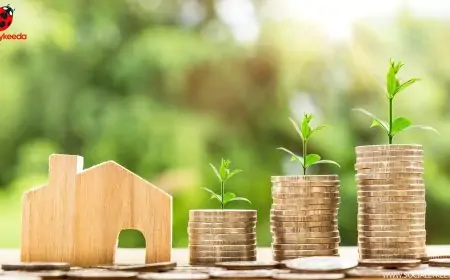Did you know that an average SME could reduce its energy bill by 18-25%? This can be done when installing energy efficiency measures, and the great thing about these activities is that 40% of them require zero capital cost. So what is energy efficiency, and how can businesses take advantage of it?
What is Energy Efficiency?
Energy efficiency is the attempt to reduce energy consumption by implementing different measures and processes. Nowadays, there are numerous products, services and systems you can use to improve your business's energy efficiency.
You can adapt simple changes such as replacing your old equipment with newer and more energy-efficient models. You can also do the more advanced route by installing a technology-aided energy management system.
What are the Benefits of Being Energy-Efficient?
There are a lot of widely recognized benefits when you install energy efficiency measures. When you monitor and control your energy use, you can reduce energy costs and lower your carbon footprint. Here are some of the other advantages of becoming an energy-efficient business:
- increased work productivity
- win new contracts with the public sector
- attract and retain quality staff
- increased competitiveness in the market
- reduce exposure to a future energy price increase
Energy Efficiency Vs. Energy Conservation
Both are closely related, but there are specific differences between these two practices. For example, when it comes to energy efficiency, it involves using tools, equipment and devices that will require less energy compared to their older and less energy-efficient models.
There are a lot of ways for businesses to become more energy efficient. They can do the following to reduce energy consumption.
- replace old, energy-consuming tools, equipment, devices and appliances with new, energy-efficient ones
When upgrading your tools, equipment, devices, and appliances, check for energy efficiency certificates as well as ratings before purchasing new equipment. Look for items with an energy efficiency rating of 'A' or above
- installing LEDs and motion sensor lighting
Make the switch from traditional halogen to LEDs and install motion sensor systems to make sure that lights are on when needed
- installing smart thermostat
Improper use of heating and cooling systems can double your energy bill. Installing a smart thermostat to monitor and control your HVAC system will allow you to reduce energy wastage immediately. It can even update you when maintenance is required.
- take advantage of an energy management system (EMS)
These systems come in various forms and use. For example, it can send energy data to a centralized computer or app, flag and diagnose potential energy-related problems instantly.
On the other hand, energy conservation refers to the changes you need to make to your habits and behaviour to reduce energy wastage. For example, you turn off the lights when not in use or switch your computer into energy-saving mode when you leave your desk for more than ten minutes.
Businesses can implement better energy conservation practices by doing the following:
- monitor and control heating, ventilation and HVAC systems
- promote sustainability by encouraging staff to turn off tools, equipment, devices and even lights when not in use
When you implement energy conservation measures, you create a better and more energy-efficient business.
Is Financial Support Available for Implementing Energy Efficiency Improvements?
Yes, the Government operates a tax incentive called the Enhance Capital Allowance (ECA). This scheme exists to encourage businesses to invest in energy-efficient equipment. Furthermore, it will allow you to claim 100% of capital allowances on the Energy Technology Product list when you purchase equipment.
How About Improvements that Require Further Expenditure?
There are many options available if you are looking at external financing.
- High street banks and specialist providers offer energy efficiency loans for businesses.
- Energy Services Companies (ESCos) can provide a complete service from energy audits to recommendations, installations and capital funding plans.
- Having Energy Performance Contracts (EPCs) will allow your business to invest in energy-saving technologies. ESCOs can help identify, design and implement energy-efficient measures that will guarantee a certain level of energy savings.
Due to the pandemic, many businesses are now in a work-from-home setup. So what can you do if your business is now based at home? First, you can take advantage of the Green Deal Home Improvement Fund. This offer will allow you to claim back some money from the Government if you adopt energy-saving home improvements.
As you can see, there are a lot of ways to make your business more energy-efficient. So, make sure to apply the things listed above so you can start saving on money and energy.
Conclusion
Every business wants to maximize profits by saving money, and if you haven't looked at your energy bills for a while, you may want to check them out right now.
If you want to get the best prices and deals for your utilities, you can check out Utility Bidder for more information.



![[WATCH VIDEO] Sophie Rain and sister Sierra Rain as Black Spiderman goes viral [WATCH VIDEO] Sophie Rain and sister Sierra Rain as Black Spiderman goes viral](https://www.sociallykeeda.com/uploads/images/202403/image_140x98_660976c59cce0.webp)





![[FULL WATCH VIDEO] Will Levis And Gia Duddy Leak Video Viral On Social Media [FULL WATCH VIDEO] Will Levis And Gia Duddy Leak Video Viral On Social Media](https://www.sociallykeeda.com/uploads/images/202405/image_140x98_6651e7ae8038d.webp)


